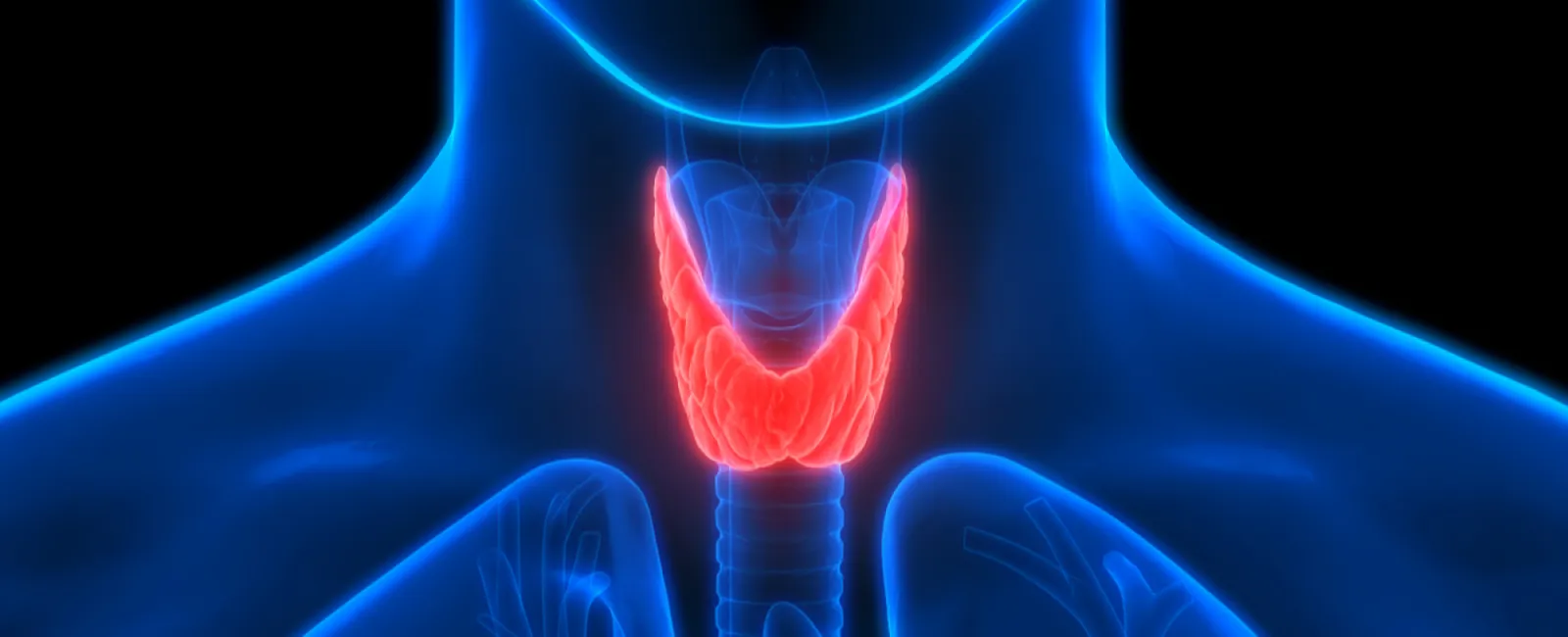January is Thyroid Awareness Month
According to the American Thyroid Association (ATA), more than 12% of people living in the United States will develop a thyroid condition in their lifetime. In fact, an estimated 20 million people have some form of thyroid disease and many go undiagnosed. Your thyroid is a vital part of the human body. Thyroid Awareness Month is observed every January, which serves as a reminder to educate ourselves on the thyroid and be evaluated for thyroid dysfunction.
Below, we will cover everything you need to know about the thyroid including what thyroid disease is, some conditions that cause thyroid problems, and lastly how you can self check your thyroid.
What is a Thyroid?
The thyroid is a butterfly-shaped endocrine gland located in your neck, which is wrapped around your trachea. The thyroids main function is to produce hormones. These hormones are involved in almost every bodily process, including controlling your heartbeat, regulating your breathing and temperature, as well as managing your metabolism. When your thyroid is working properly, it maintains the right amount of hormones which keeps everything working at the right rate. Your thyroid’s function starts with the pituitary gland, located right below the front of your brain. The pituitary gland monitors the amount of thyroid hormones in the bloodstream. When it detects a lack of thyroid hormones, it releases a hormone called “thyroid stimulating hormone.” Thyroid stimulating hormone (TSH) helps guide the thyroid gland back to its normal functionality.
What is Thyroid Disease?
Thyroid disease occurs when the thyroid cannot produce the right amount of hormones. There are two common types of thyroid disease: hyperthyroidism and hypothyroidism.
Hyperthyroidism is an overproduction of hormones. When the thyroid releases too many thyroid hormones, your body goes into overdrive. Symptoms of hyperthyroidism may include:
- Fast heart rate
- Weight loss
- Inability to sleep
- Anxiety
- Sensitivity to heat
Conversely, the body can produce too few hormones which is known as hypothyroidism. Hypothyroidism is the most common type of thyroid disorder. A list of symptoms may include:
- Fatigue
- Weight gain
- Constipation
- Depression
- Sensitivity to cold
Thyroid disease can happen at any age. Hypothyroidism is more common as we get older, but it can happen at any point in life, including at birth. Women are up to 8 times more likely to have a thyroid condition. In addition, people with a family history are more likely to develop thyroid problems.
What is Thyroid Disease Vs Thyroid Cancer
Thyroid cancer is a growth that develops in the cells of the gland. There are several types of thyroid cancer, however some are more aggressive than others. Thyroid cancer has less warning signs than other types of thyroid disease, hence it’s important to routinely check in with your doctor.
The American Cancer Society estimated 44,280 new cases of thyroid cancer for 2021. In fact, thyroid cancer was one of the most rapidly increasing cancers in the United States, due to better detection methods. However in recent years, numbers have stabilized.
At this time, we don’t know how to prevent thyroid disease or thyroid cancer, but treatments are available.
What Causes Thyroid Problems?
Hypothyroidism and hyperthyroidism can be caused by other diseases.
Conditions that can cause hypothyroidism are:
- Thyroiditis: A condition that causes inflammation in the thyroid gland and can lower the amount of hormones it produces
- Hashimoto’s Thyroiditis: This is an autoimmune condition where the body’s cells attack and damage the thyroid
- Postpartum Thyroiditis: A typically temporary condition that occurs in some women after childbirth
- Non-Functioning Thyroid Gland: This occurs at birth, affecting about 1 in 4,000 newborns. A non-functional gland is usually detected within the newborn’s first hours out of the womb
Hyperthyroidism can be caused by the following:
- Graves’ Disease: a condition in which the entire gland might produce too many hormones. It is also called diffuse toxic goiter. It causes an enlargement of the thyroid gland
- Thyroiditis: In the case of hyperthyroidism, thyroiditis is caused when cells are damaged quickly and leak excessive hormones
- Nodules: Usually a benign (non-cancer) growth that can overproduce thyroid hormones. Not all thyroid nodules produce hormones
The mineral iodine is important in the production of thyroid hormone. Iodine deficiency can cause hypothyroidism, subsequently, too much iodine may cause hyperthyroidism.
What is a Thyroid Nodule?
Thyroid nodules are a clump of cells that form within the thyroid. Albeit in most cases, these are not serious and only a small percentage are cancerous. It’s common for nodules not to show any signs or symptoms, however, they can increase in size which can be seen and felt. If they are large, they can cause difficulty in breathing. Although they don’t pose too much of a threat, you should still see a doctor to make sure it’s not cancer.
How to Check Your Thyroid
Checking your thyroid at home can help with early thyroid disease detection. Take a handheld mirror to your thyroid gland, which is in the lower front area of your neck, just above the collarbones. Tip your head back a little and take a drink of water and swallow. Watch your neck in the mirror as you swallow. If you notice any bulges in this area, you should see your Ascend Medical provider as soon as possible.
With our 24/7 virtual care and mobile visits, we can quickly examine your thyroid for potential diagnosis. Schedule a check up with Ascend Medical today!
Schedule Your Appointment Now